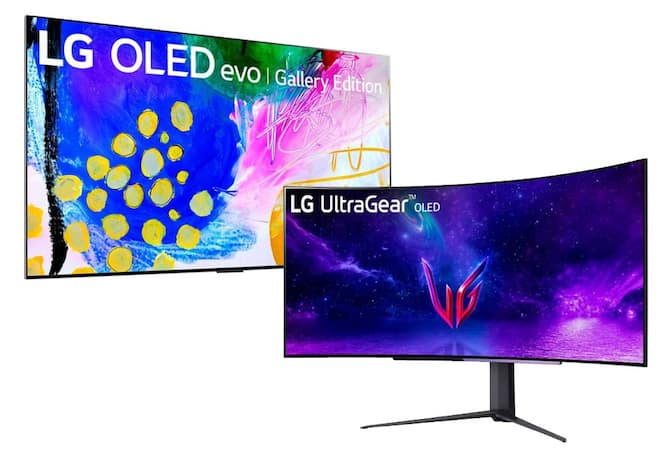What is the Difference Between a Smart TV and a Smart Monitor?

carousel
Anyone who loves watching movies, a good TV series or televised sports can appreciate today’s wide availability of on-demand streaming services. With the advent of subscription streaming services, almost any media is at your fingertips. However, having the right way to watch is key.
It’s easy to fixate on issues like comparing streaming devices vs. smart TVs, but the actual screen you’ll use to watch anything plays a huge role in how the viewing experience actually turns out. That’s where comparing a smart monitor vs. smart TV comes in. But first, let’s answer some questions: what even is a smart TV or smart monitor? How do you know which to choose, and what do they offer? Knowing their key differences is a good place to start.
What is a smart TV?
What is a smart monitor?
Smart monitor vs. smart TV: the key differences
Their similarities are part of what may make it tough to decide between the two devices—both offer high-resolution and built-in streaming capabilities, and in most cases, both can technically be used as either a TV or a computer monitor. That being said, let’s break down the main differences between them:
Size and optimal use. One of the most significant differences between a smart TV and a smart monitor is their size and intended use. Smart TVs are larger and designed primarily for a living room or home theater setup, whereas smart monitors are more compact and versatile, suitable for various settings, including home offices and bedrooms. For example, you might have an easier time setting up a smart monitor on a computer desk or stand as part of a home office setup due to their smaller size.
Resolution. Smart TVs often boast higher resolution options, such as 4K, which provides a superior viewing experience with greater detail. Smart monitors, while still offering high-definition displays, may not reach the same level of resolution as top-tier smart TVs. However, this may be due to size more than anything, as there are also some smart monitors that boast competitive resolution, color and clarity.
Connectivity. Both smart TVs and smart monitors come with built-in Wi-Fi and app support. However, smart monitors may have fewer connectivity options, as they are primarily designed for use with computers and may lack multiple HDMI cable ports and other TV-specific inputs.
Price. Smart monitors tend to be more budget-friendly compared to smart TVs with similar features. If you're looking for a cost-effective way to enjoy smart functionality, a smart monitor could be the way to go.
Size variety. While smart TVs come in a wide range of sizes, including 55-inch, 65-inch and 75-inch options, smart monitors are generally smaller, with sizes commonly ranging from 24 inches to 32 inches.
Multitasking. Smart monitors excel at multitasking. You can use them as computer displays, split the screen for multiple applications and still access streaming TV content simultaneously. This feature is especially beneficial for those who use their screens for both work and entertainment.
Gaming. If gaming is a priority, some smart monitors offer specialized gaming modes and features like fast refresh rates and low input lag, making them a favorite choice for gamers. On the other hand, smart TVs can experience slowness, meaning you may spend more time finding answers to why your smart TV is running slow and how to fix it.
Shopping for the best smart TV and smart monitor options
When shopping for the best smart TV, consider factors such as screen size, resolution (look for 4K TVs for optimal viewing) and brand reputation. If you go the smart TV route, you’ll find tons of options like Roku TV, Amazon Fire TV and other popular brands. Keep an eye out for smart TV deals to get the most value for your money.
Your smart monitor selection could include considerations like an ideal size for the space where it’ll live, whether you’ll use it as a TV as well as a computer monitor and what types of operations you’d be performing with it, such as hooking up external media streaming devices. Regardless, you’ll find a number of options that rival the smart TV in quality.
Whichever one you choose, look for smart monitors and TVs on sale at Best Buy for a large range of options.